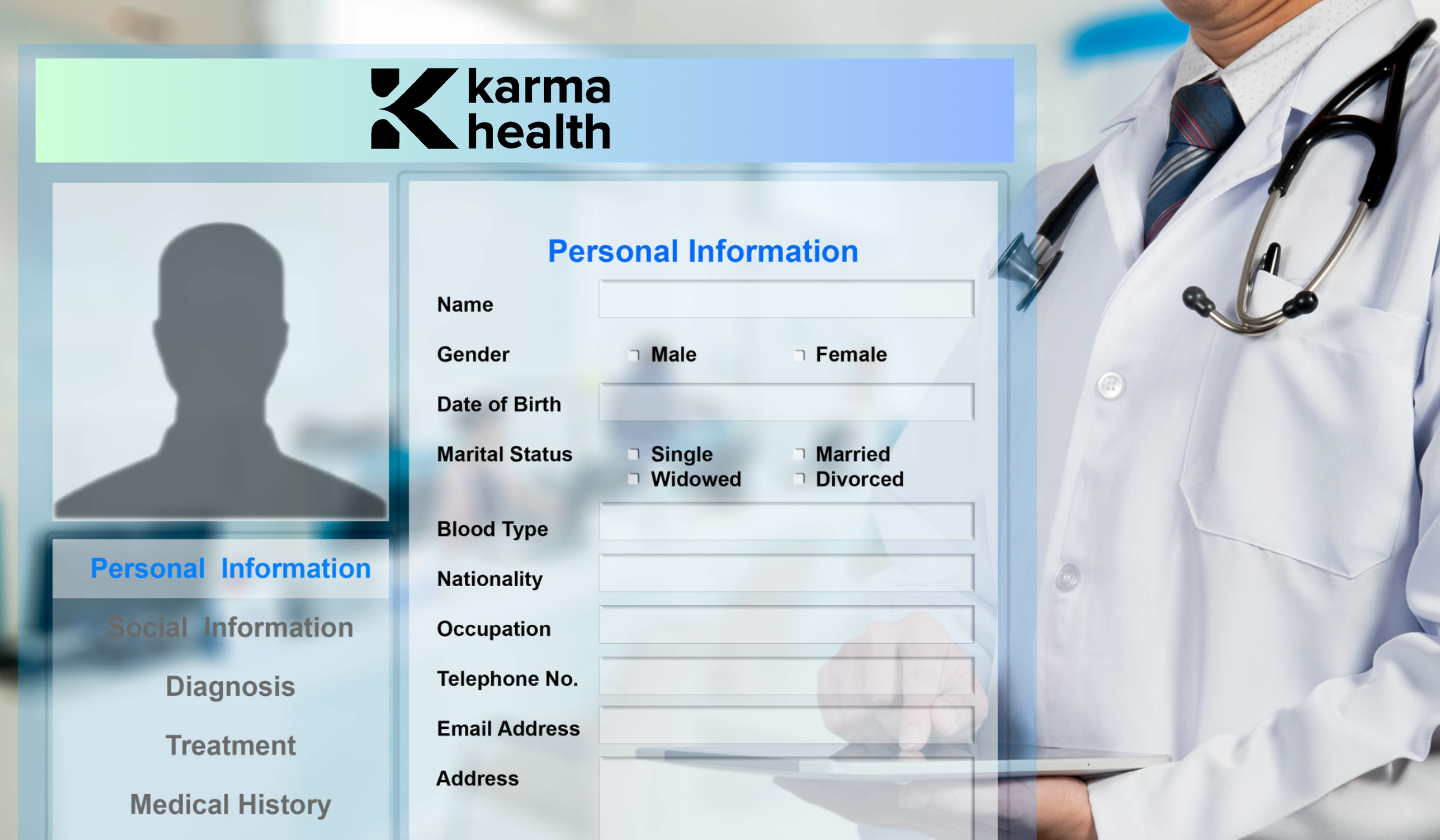EMR/ EHR Integration and Migration Services for Healthcare
Welcome to Karma Health! If you are looking to migrate your clinic’s electronic medical records (EMR) or electronic health records (EHR), you have come to the right place. Our Clinic EMR/EHR Migration services are designed to make the process seamless, hassle-free, and secure.
Our team of experts has extensive experience in migrating EMR/EHR systems across a variety of platforms and providers. We understand that migrating your clinic’s records can be a daunting task, which is why we work closely with you to create a customized migration plan that meets your specific needs and goals.
Our Clinic EMR/EHR Migration services include data mapping, data cleansing, system configuration, and testing to ensure that your data is migrated accurately and securely. We also provide ongoing support and maintenance to ensure that your new EMR/EHR system is operating at its best.
 What is an API in healthcare?
What is an API in healthcare?
At Karma Health, we understand that your clinic’s records are critical to the success of your practice. That’s why we take the security and confidentiality of your data seriously. Our Clinic EMR/EHR Migration services are HIPAA compliant and ensure that your data is protected throughout the entire migration process.
Whether you are migrating from paper records or a different EMR/EHR system, our Clinic EMR/EHR Migration services can help you achieve a smooth, successful transition. Contact us today to learn more about our services and how we can help you take your practice to the next level.
WHAT IS AN EHR/EMR?
At our company, we specialize in Healthcare API Integration Services that help healthcare organizations streamline their operations and improve patient care. Our EMR/EHR services are designed to meet the unique needs and goals of healthcare practices of all sizes. Whether you are a small clinic or a large healthcare organization, our team of experts can help you implement and optimize an EMR/EHR system that meets your specific requirements.
At Karma Health, we understand that EMR/EHR systems can be complex and challenging to implement. That’s why we provide end-to-end services that take the stress and uncertainty out of the process. Our team of experts is committed to providing you with the highest level of service and support, so you can focus on what matters most – providing excellent patient care.
Our team of experts has extensive experience in integrating APIs from various healthcare systems such as Electronic Health Records (EHRs), healthcare devices, telemedicine platforms, and more. We leverage our expertise to provide you with seamless integration of these systems with your existing healthcare infrastructure.
Here is a list of the top 50 EMR/EHR companies, based on revenue and market share:
- Epic Systems
- Cerner Corporation
- Allscripts
- Athenahealth
- eClinicalWorks
- NextGen Healthcare
- MEDITECH
- Greenway Health
- McKesson Corporation
- Practice Fusion
- Kareo
- drchrono
- GE Healthcare
- Virence Health
- Amazing Charts
- Modernizing Medicine
- SRS Health
- AdvancedMD
- eMDs
- ChartLogic
- Compulink Healthcare Solutions
- Aprima Medical Software
- Centricity EMR
- Quest Diagnostics
- CareCloud
- NueMD
- WRS Health
- e-MDs
- PrognoCIS
- Optum
- Nextech
- Carestream Health
- Azalea Health
- Praxis EMR
- OmniMD
- CollaborateMD
- SOAPware
- Office Ally
- Sevocity
- Medsphere Systems Corporation
- eVisit
- ModernMD
- MTBC
- ADP AdvancedMD
- iSalus Healthcare
- PCC
- Intergy
- MediTouch
- NCG Medical Systems
How Does API Work on a Healthcare Website?
API (Application Programming Interface) works on a healthcare website by allowing communication between different software applications, enabling seamless integration and sharing of data. When a healthcare website incorporates an API, it can share and retrieve data with other applications and platforms, such as electronic health record systems, appointment scheduling software, and billing systems.
For instance, a healthcare website can use an API to enable patients to book appointments online, which automatically updates the schedule in the clinic’s appointment scheduling software. The website can also use an API to retrieve a patient’s medical history from the electronic health record system and display it on the website’s patient portal.
APIs work through a set of rules that govern how different software applications can communicate and share data. The API acts as a translator between different applications, allowing them to understand and interpret data from each other. Developers can create custom API integrations that fit the unique needs of a healthcare website, including custom data fields, security protocols, and user permissions.
An API, or Application Programming Interface, is a software intermediary that allows different API healthcare software applications to communicate with each other. Essentially, it enables data to be exchanged between different systems in a secure and standardized way, regardless of the programming language or platform used to create the applications.
APIs have become increasingly important in healthcare as the industry has become more digitized and data-driven. With the use of APIs, healthcare providers can integrate various software applications and systems, such as electronic health records (EHRs), clinical decision support tools, and telemedicine platforms, to streamline workflows, improve care coordination, and enhance patient outcomes.
APIs in healthcare are governed by strict regulations, such as HIPAA (Health Insurance Portability and Accountability Act), to ensure the security and privacy of patient information. As such, healthcare APIs must adhere to certain standards and protocols, such as FHIR (Fast Healthcare Interoperability Resources), to ensure interoperability and secure data exchange between different healthcare systems.
Overall, APIs enable healthcare websites to enhance their functionality, improve patient experiences, and streamline processes by sharing and integrating data across different platforms and applications.
Our Healthcare API Integration Services provide numerous benefits, including:
- Improved Patient Care: By integrating various healthcare systems, healthcare providers can access comprehensive patient data, which can help them make better-informed decisions and provide better care.
- Enhanced Operational Efficiency: With streamlined data sharing between different healthcare systems, organizations can eliminate manual processes, reduce errors, and increase efficiency.
- Cost Savings: Our Healthcare API Integration Services can help reduce operational costs associated with manual data entry and improve revenue cycle management.
- Improved Interoperability: Integrating APIs from different healthcare systems can improve interoperability, allowing for more efficient and effective communication between providers.
Our API Integration in Healthcare Services is customized to meet the unique needs of each healthcare organization. We work with you to understand your specific requirements and design a solution that seamlessly integrates with your existing infrastructure.
Contact us today to Know more about how our Healthcare API Integration Services can help your organization improve patient care and streamline operations.
